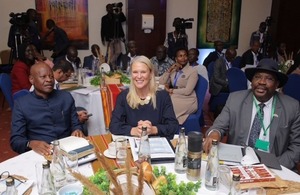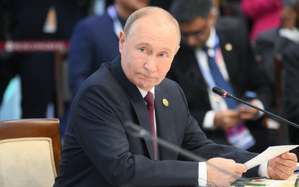Why Economic Potential is the Key to Our Future? In this speech, Mr Bailey explores the vital importance of economic growth and its far-reaching implications. He emphasizes that understanding and enhancing potential supply—the maximum output the economy can sustain without sparking inflation—forms the foundation of sustainable growth. With a focus on the UK’s declining productivity and labour supply, Mr Bailey introduces five pressing questions about investment, labour, data measurement, economic openness, and the role of AI. Through these questions, he outlines a roadmap to address supply constraints, foster resilience, and lay the groundwork for long-term prosperity
Economic growth is often hailed as the foundation of prosperity, but in a landmark address at the Mansion House Financial and Professional Services Dinner, Mr Andre Bailey, Governor of the Bank of England, laid out why the UK’s current trajectory demands urgent attention.
Speaking to an audience including the Lord Mayor and Chancellor, the address navigated the complexities of economic growth, focusing on the decline in potential supply and offering a blueprint for renewal.
The speech began by contextualizing the role of potential supply in shaping monetary policy and broader economic health. It was explained that potential supply—the economy’s productive capacity—acts as a “speed limit” on how fast the economy can grow without triggering inflation. This crucial concept impacts not only inflationary pressures but also long-term wealth creation and public policy. However, estimating potential supply remains challenging, requiring a careful assessment of labour supply, productivity, and structural factors such as population changes and innovation.
A sobering analysis followed, detailing how potential supply growth in the UK has weakened since the financial crisis. From 1990 to 2008, potential supply grew at 2.6% annually, with productivity contributing the lion’s share. Post-crisis, between 2009 and 2019, this rate halved to 1.3%, and by 2020–2023, it plummeted to 0.7%, primarily due to Covid-19 disruptions. The pandemic, while a major shock, was not portrayed as the sole culprit; instead, the lasting impact on labour supply and productivity raises profound questions for the economy’s future.
Mr Bailey acknowledged that the UK is not alone in facing these challenges, but its situation is more acute compared to the US, which has demonstrated better productivity and investment outcomes. In contrast, the UK lags behind its G7 peers, particularly in business investment—a key driver of productivity and economic resilience.
From these observations emerged five critical questions that framed the rest of the speech: Why does investment matter, and how can it be increased? Is labour supply an issue? Are we measuring economic inputs accurately? Does economic openness matter? And, finally, could artificial intelligence provide a solution?
Investment is the backbone of economic growth, and the UK has consistently underperformed in this area. The speaker highlighted how, since the late 1990s, the UK has ranked near the bottom of the G7 in terms of investment as a share of GDP. Public investment, while important, cannot suffice alone; stronger private sector investment is essential. Initiatives such as improved infrastructure and education were praised as foundational, but the speaker emphasized that translating public investment into a substantial boost in potential growth requires a more robust response from businesses.
The fragmented UK pension system also came under scrutiny. While progress in consolidating pension funds was welcomed, it was stressed that compelling asset managers to invest in the real economy is not a viable solution. Instead, collaboration between government, the financial sector, and industry is needed to channel resources effectively.
Labour supply, the other pillar of potential supply, faces headwinds from demographic changes. An ageing population is reducing the available workforce, making productivity improvements and investment even more critical. Short-term trends, including workforce participation rates, also pose challenges. Policymakers were urged to integrate economic arguments into broader labour supply debates, ensuring policies are aligned with the country’s growth objectives.
Turning to measurement, Mr Bailey acknowledged that data limitations hinder economic assessments. For instance, the UK struggles to measure intangibles—such as data and intellectual property—which are increasingly central to the modern economy. The Office for National Statistics (ONS) plans to include data as an asset in GDP calculations, potentially boosting measured GDP by 1–2%. However, this improvement in measurement does not change the underlying issues of low investment and productivity.
Labour market data also drew criticism, with gaps in participation figures complicating policy decisions. The speaker humorously encouraged better public cooperation with surveys, emphasizing that accurate data is foundational for sound policymaking.
The address championed economic openness as a driver of productivity, citing historical evidence of its benefits for innovation and specialization. However, the UK’s changing relationship with the EU has weighed on its potential supply.
While acknowledging the importance of respecting the Brexit decision, Mr Bailey urged policymakers to rebuild trade relations and embrace global opportunities. Geopolitical tensions and global economic fragmentation add complexity, but the case for openness remains strong.
Finally, artificial intelligence (AI) was presented as a potential game-changer. Described as a “general-purpose technology” akin to the steam engine or electricity, AI could revolutionize productivity across sectors. However, Mr Bailey cautioned against expecting immediate results, citing historical examples where transformative technologies took decades to significantly impact productivity. The key is sustained investment and experimentation to unlock AI’s full potential over time.
He concluded with a call for bold and coordinated action. Declining potential supply is a significant issue that cannot be ignored. Investment—both public and private—must be prioritized, labour supply challenges addressed, and openness preserved. While AI offers hope for the future, immediate steps are needed to reverse the current trajectory. The UK’s economic story, though troubled, can be rewritten with a focused and collaborative effort.
In an era where growth matters more than ever, this address served as both a diagnosis of challenges and a roadmap for renewal. The stakes are high, but so too is the potential for progress.














